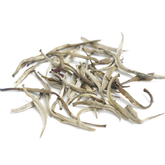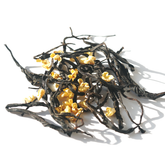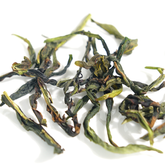Is Pure Leaf Tea Good For You?|NPTEA
Drinking tea is undoubtedly beneficial for your health. China is the birthplace of tea, and nearly all the world’s tea varieties originated from China, whether in terms of craftsmanship or tea plant species. For thousands of years, China has preserved its traditional, handcrafted tea-making techniques. Chinese tea is completely natural, without any artificial flavorings or colorings, retaining the original aroma and nutritional value of the tea leaves. These qualities make tea not only a thirst-quenching beverage but also a healthy drink that nourishes the body. In China, it’s customary for people to drink tea before and after meals. Drinking tea before meals can refresh the mind and stimulate appetite, while tea after meals aids digestion, especially teas like Pu-erh and Oolong, which help break down fats and protect the digestive system. Tea contains antioxidants such as tea polyphenols, which help combat free radicals, slow aging, and boost the immune system.

In Yunnan Province, China, there are vast ancient tea forests. The climate and fertile soil in these regions, often covered in mist, produce natural and pure tea leaves. Generations of artisans have meticulously crafted these teas, delivering a purely natural flavor. Some types of tea, like White Tea and Oolong Tea, are unique to China. However, it's unfortunate that many of these high-quality teas have not made their way into the international market, where they could be more widely appreciated.
Impact of Adding Artificial Flavorings and Colorings to Tea
In Western markets, some tea brands add artificial flavors and colors to their products, particularly in bagged or flavored teas. These additives are used to enhance the aroma and color of the tea, making it more appealing. For example, certain fruit-flavored, vanilla, or floral teas often achieve their desired taste through the addition of artificial flavorings. Additionally, when the color of the tea in some tea bags appears dull or lacks vibrancy, colorants might be used to improve its visual appeal. Many bagged teas use tea dust or fannings, which can lead to excessive caffeine intake and place an added burden on the body.

There is growing evidence that large amounts of artificial flavors and colors may have negative effects on health. Artificial colorings like Red 40, Yellow 5, and Blue 1 are widely used in beverages and foods. Some studies suggest that certain artificial colorings may be linked to hyperactivity and behavioral issues in children. Furthermore, some colorants have shown potential carcinogenic risks in animal studies.

Conclusion
Drinking tea is undoubtedly beneficial for your health, especially when you consume teas without any added flavorings or colorings. Chinese teas are known for preserving the integrity of the tea leaves, free from additives, and are handcrafted to perfection. These natural tea leaves offer a wide range of health benefits. It’s no wonder that for thousands of years, Chinese people have enjoyed this pure, natural beverage as part of their daily routine.
SEE MORE
If you have questions about selecting tea:
Learn-more-about-chinese-tea
If you have questions about the benefits of tea:
Health-benefits-of-chinese-tea
If you have questions about brewing tea:
How-to-brew-loose-leaf-tea







